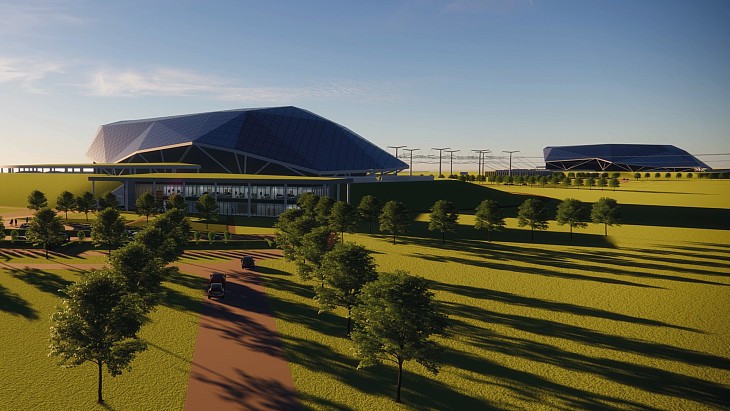The Sellafield site - which houses more than 1000 buildings - is the largest nuclear complex in Western Europe. Sellafield's nuclear facilities include those connected with the Magnox reprocessing programme, the Sellafield mixed-oxide fuel plant, the Thermal Oxide Reprocessing Plant, and nuclear waste treatment plants. It is also home to redundant facilities from defence work in the 1950s, which included making plutonium for nuclear weapons.
The Nuclear Decommissioning Authority (NDA) expects full site remediation at Sellafield will take until 2125, while the forecast cost of decommissioning the site has risen to GBP136 billion (USD176 billion). The NDA spent GBP2.7 billion at Sellafield in 2023-24, while the site earned GBP0.8 billion in income in the same year.
The Public Accounts Committee's report finds that Sellafield Ltd has missed most of its annual targets for retrieving waste from several buildings on the site, including the Magnox Swarf Storage Silo (MSSS). The committee's inquiry heard that the MSSS is the most hazardous building in the UK, and "as a result of Sellafield Ltd's underperformance will likely remain extremely hazardous for longer". The report seeks answers from government on how it will hold the NDA and Sellafield Ltd to account in mitigating the site's greatest hazards.
"Sellafield Ltd's performance in delivering major projects (such as new buildings to store waste or make it safe) has historically been very poor, with large cost increases and delays occurring all too frequently," the report says. "There are signs of improvement – however given Sellafield's track record, we are yet to be fully convinced that this is not another false dawn."
The Public Accounts Committee warns of the impact that delays in the programme have on costs. In the long-term, waste will need to be stored in an underground Geological Disposal Facility (GDF). The committee finds that the date for the GDF has slipped from 2040 to the late 2050s, with every decade of delay meaning Sellafield could need to construct another storage building, each costing GBP500-760 million.
The Public Accounts Committee says the Department for Energy Security and Net Zero (DESNZ) "needs to do more to ensure that the site is decommissioned in a way that represents value for money for the taxpayer". It says the estimated cost of decommissioning the site will rise "if work is deferred for short term affordability reasons, or if the GDF is delayed. Conversely, there may be opportunities to reduce the cost of decommissioning Sellafield and the other NDA sites". The committee said DESNZ also "needs to make sure that Sellafield Ltd and the NDA are implementing a corporate culture in which all staff feel safe and confident to speak up, particularly given the safety critical nature of the industry".
"As with the fight against climate change, the sheer scale of the hundred-year timeframe of the decommissioning project makes it hard to grasp the immediacy of safety hazards and cost overruns that delays can have," said Sir Geoffrey Clifton-Brown, Chair of the committee. "Every day at Sellafield is a race against time to complete works before buildings reach the end of their life. Our report contains too many signs that this is a race that Sellafield risks losing.
"It is of vital importance that the government grasp the daily urgency of the work taking place at Sellafield, and shed any sense of a far-off date of completion for which no-one currently living is responsible. Sellafield's risks and challenges are those of the present day. There are some early indications of some improvement in Sellafield's delivery which our report notes. Government must do far more to hold all involved immediately accountable to ensure these do not represent a false dawn, and to better safeguard both the public purse and the public itself."
The Public Accounts Committee examines the value for money of government projects, programmes and service delivery. Drawing on the work of the National Audit Office, the committee holds government officials to account for the economy, efficiency and effectiveness of public spending.
NDA Group CEO David Peattie said: "We welcome the scrutiny of the committee and their report; we will now look in more detail at the recommendations and consider how best to address them. We take the findings seriously and the safety of the site and the wellbeing of our people will always be our highest priorities. As the Committee has noted, Sellafield is the most complex and challenging nuclear site in the UK. We are pleased they recognise improvements in delivering major projects and that we are safely retrieving waste from all four highest hazard facilities.
"With the support of our employees, their representatives, community, and stakeholders we remain committed to driving forward improved performance and continuing to deliver our nationally important mission safely, securely, and sustainably."

_41792.jpg)



_19544_40999.jpg)


_66668.jpg)





